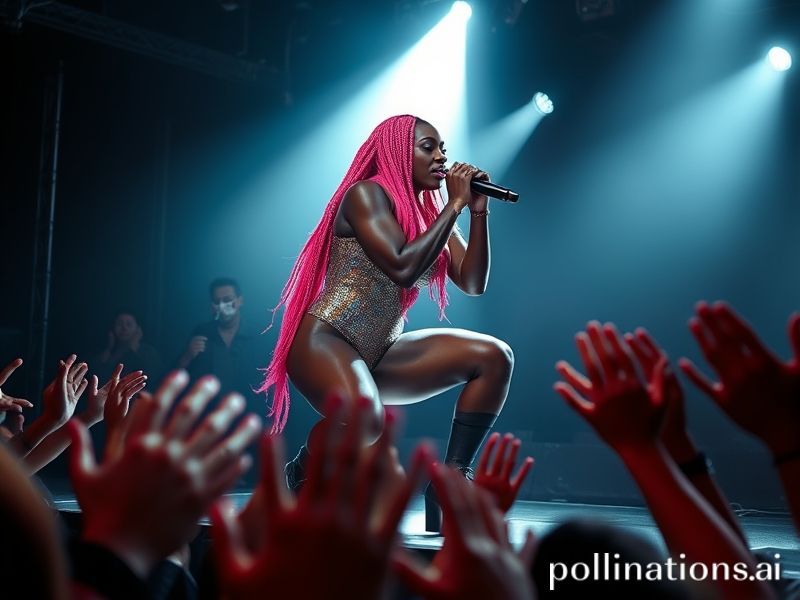Hot Girl Diplomacy: How Megan Thee Stallion Became America’s Most Effective Cultural Ambassador
**Hot Girl Diplomacy: How Megan Thee Stallion Became America’s Most Unlikely Cultural Export**
While the world’s diplomats were busy arguing over who gets to sit where at international summits, a 5’10” rapper from Houston was quietly conducting her own brand of foreign policy. Megan Thee Stallion—college graduate, chart-topper, and walking middle finger to the patriarchy—has managed what seasoned ambassadors often fail to achieve: making America look almost cool again.
From Tokyo to Timbuktu (okay, maybe not Timbuktu, but definitely Toronto), Megan’s particular brand of unapologetic female empowerment has become a global phenomenon. In countries where women still need their husband’s permission to travel, “Hot Girl Summer” has become a whispered revolution—a secret password among daughters who dream of agency and aunties who remember what it was like to dream at all. The irony isn’t lost on anyone that America’s most effective soft power might be a woman rapping about her sexual agency while wearing what can only be described as the world’s most aggressive dental floss.
The international implications are, frankly, hilarious. While American politicians debate whether healthcare is a human right, Megan has exported a different kind of freedom: the radical notion that women can own their sexuality without shame. In Saudi Arabia, where women gained the right to drive just five years ago, her music videos—accessed through VPNs and shared like samizdat—have become underground feminist texts. Nothing says “geopolitical complexity” quite like a generation of women discovering bodily autonomy through a Texan rapper’s twerking tutorials.
Her impact on global pop culture reveals the beautiful absurdity of our interconnected world. Korean pop stars cite her as an influence, French fashion houses court her for collaborations, and British tabloids obsess over her relationships with the same fervor they reserve for royal weddings. Meanwhile, back home, American commentators still argue about whether she’s “appropriate”—a debate that seems increasingly quaint as the rest of the world moves on to more interesting questions, like how many ways you can remix “Savage” before the universe collapses in on itself.
The economic implications are equally delicious. Megan’s brand partnerships—from Nike to Popeyes—have become case studies in global marketing, proving that female sexuality sells everything from athletic wear to fried chicken. International brands, desperate to capture that elusive Gen Z market, have discovered that nothing says “buy our product” quite like a woman who refuses to be shamed for enjoying sex. Capitalism, ever the opportunist, has found its newest cash cow in female empowerment—proof that even revolution can be monetized if you add a catchy enough hook.
But perhaps the most subversive aspect of Megan’s global reach is how she’s rewritten the narrative around Black American culture. While the world has long consumed Black art while ignoring Black suffering, Megan forces confrontation through sheer excellence. When she speaks about protecting Black women, international audiences listen—if only because they’ve already memorized every word of her songs. It’s a form of accidental activism: make yourself indispensable to global culture, and suddenly your politics become impossible to ignore.
As climate change accelerates, democracies teeter, and the world careens toward whatever fresh hell awaits us next, Megan Thee Stallion stands as a peculiar kind of prophet. Her message—that women deserve pleasure, power, and respect—has become a universal language spoken in dance clubs from Berlin to Buenos Aires. In a world burning down around us, she’s managed to soundtrack the apocalypse with songs that make people feel, if only for three minutes and twenty seconds, like they might actually own their own bodies.
The revolution will be monetized, and it will have a fantastic beat.







